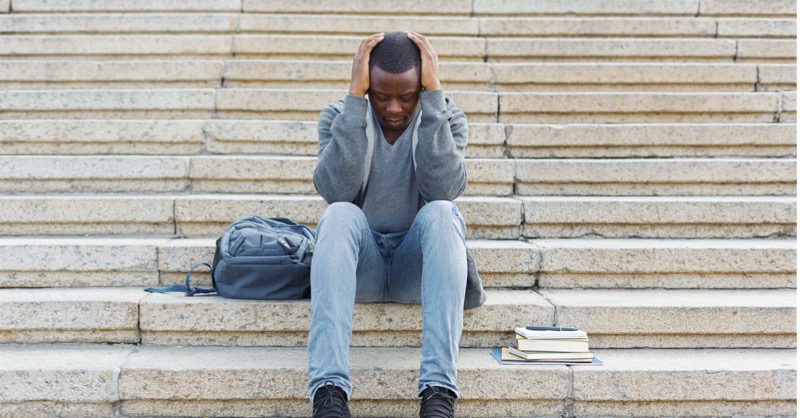College students are struggling with anxiety
Twenty percent of recently surveyed college students said they are “constantly anxious” and 81% reported that they “are dealing with some level of anxiety.” Although most are not seeking professional help, many have made lifestyle changes to help them adjust to the stress they have been feeling during the pandemic. “Many are embracing more healthy habits — 62% say they are drinking less and 84% say they are using less or no cannabis since the start of the pandemic. Nearly 40% report cooking more. More than half say they are dedicating more time to classwork.” However, about 70% said that classwork and remaining engaged in online learning is their primary challenge; 40% are now exercising and sleeping less. When asked about the mental health services available at their schools, more than 25% said they were unsure.
Source: University Business
Most colleges expect tuition revenue to decline
The majority of private and public colleges (75% and 60%, respectively) anticipate that their net tuition revenue will decrease in fiscal year 2021. Last year, 39% of private colleges and 54% of public schools anticipated that tuition revenue would decline. Moody’s Investors Service, which “partially attributes the losses to increased financial aid and pandemic-driven enrollment downturns, especially among international students,” cited a 15% drop in international enrollment at private colleges and a 20% drop at public schools this fall. “Median tuition revenue will likely fall between roughly 1% and 3%, for public and private nonprofit colleges, respectively, in fiscal 2021. In fiscal 2020, net tuition revenue increased an estimated 1.2% at public colleges and 1.3% at private colleges.”
Source: Education Dive
Defying predictions, fewer students transferred colleges this fall
“The number of students transferring from two-year colleges to four-year institutions increased by 2.6% during the fall, but overall transfer enrollment dropped 4.7%,” according to data released by the National Student Clearinghouse Research Center. “The findings dispelled two prognostications that had been floated when the COVID-19 pandemic struck – that there would be students en masse transferring out of four-year institutions and going back to two-year colleges and that there would be considerable movement within community colleges or even within four-year institutions. Neither has occurred.” Instead of inspiring more transfers, it appears that the pandemic has prompted more students to decide against attending college at all. “Lateral transfers – those students going from college to college – declined by 8.3% year over year. ‘Summer swirlers,’ or those students who were at a four-year institution, transferred to community college over the summer and then transferred back to the four-year school, dropped by 10.8%. Reverse transfers saw the steepest decline at 18.4%.”
Source: University Business
The University of California System can’t consider SATs or ACTs for admissions
A state appeals court has ruled that the University of California System (UC) can’t review applicants’ SAT or ACT scores for admission for at least the next year. In May, UC announced it would phase out its use of the exams during the next five years, but a lawsuit contending the tests are biased led a judge to grant a temporary injunction barring the system from considering them. UC appealed the injunction; on October 29, the appeals panel upheld it. “The appeals court found that the University of California had not shown that it would be irreparably harmed by the ruling.” According to one estimate, more than 1,570 colleges will not require applicants to submit SAT or ACT scores as part of the admissions process next year.
Source: Inside Higher Ed
